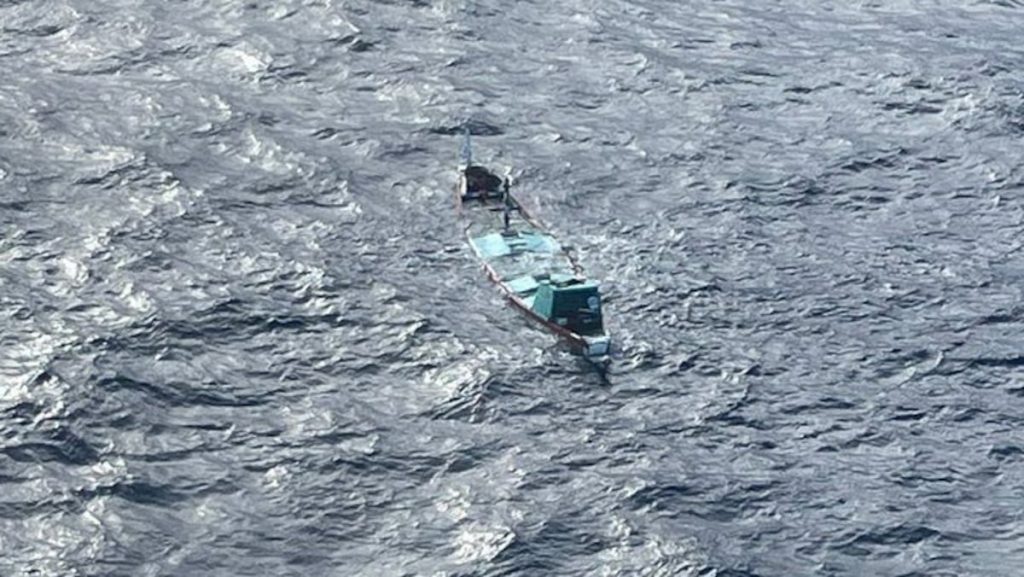A Maritime Rescue helicopter rescued nine men early on Monday morning who were clinging to the deck of a canoe that capsized two days ago with all its occupants on board. The canoe was carrying 60 people, 51 of whom are still missing. The vessel was found about 110 kilometers from El Hierro thanks to the call from the Beskidy, a tanker traveling from Brazil to Cartagena. The ship radioed that it was partially submerged, prompting the immediate dispatch of a rescue helicopter based in Tenerife, as well as the Salvamar Adhara from El Hierro and a patrol boat from the Civil Guard.
The Helimer 206 picked up the nine remaining people around 9:35 in the morning, clinging to the partially sunken boat. According to emergency services sources, the survivors have told the Helimer rescuers, and later on the ground, that they had been in that precarious situation for two days. Once they landed at the airport in El Hierro and received medical assistance, the survivors explained that the canoe had departed from the town of M’Bour (Senegal) to the Canary Islands nine days ago, carrying 60 people on board, and capsized on the seventh day of the journey. The survivors are the only ones who managed to stay afloat, turn the canoe over, and climb back aboard.
The route taken by canoes to reach the island of El Hierro (the westernmost island of the Canary Islands) is longer and more dangerous than other shorter routes between Morocco or Western Sahara and the eastern islands (Lanzarote, Fuerteventura, and Gran Canaria). Earlier in the month, a canoe arrived on the shores of Brazil with nine bodies on board. The Brazilian government suspects that the lost boat carried at least 25 Africans headed for the Canary Islands who died of hunger and thirst. Mid-month, the International Organization for Migration (IOM) provided the Spanish government with a report showing a 20% increase in the number of people who have disappeared while trying to reach the Canaries from Africa this year, 200 more people than the same period last year.
Despite these dangers and recent tragedies, the flow of immigrants does not stop. Four vessels with a total of 220 immigrants on board arrived at the Canary Islands on Sunday alone, two on El Hierro and two on Gran Canaria, as reported by emergency services. From January 1 to April 15, 14,115 people arrived on the islands, compared to 2,376 in the same period last year, representing a 491% increase. They arrived on 212 boats, compared to 56 in 2023. The arrivals in the Canary Islands accounted for 80% of the total number of immigrants who arrived in Spain by sea and land during this period.


